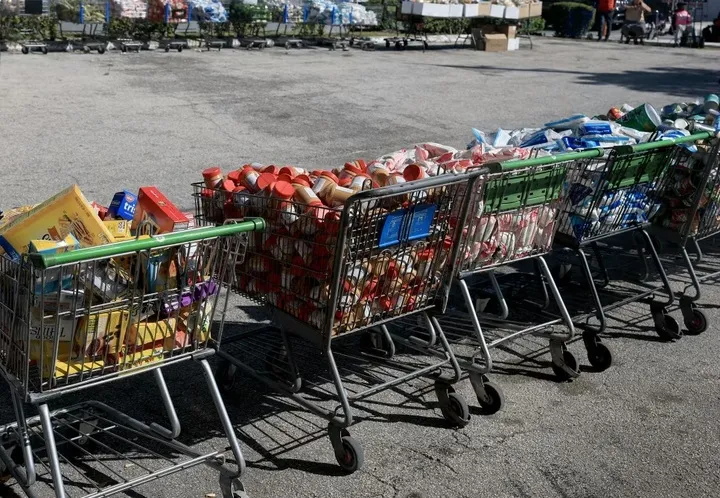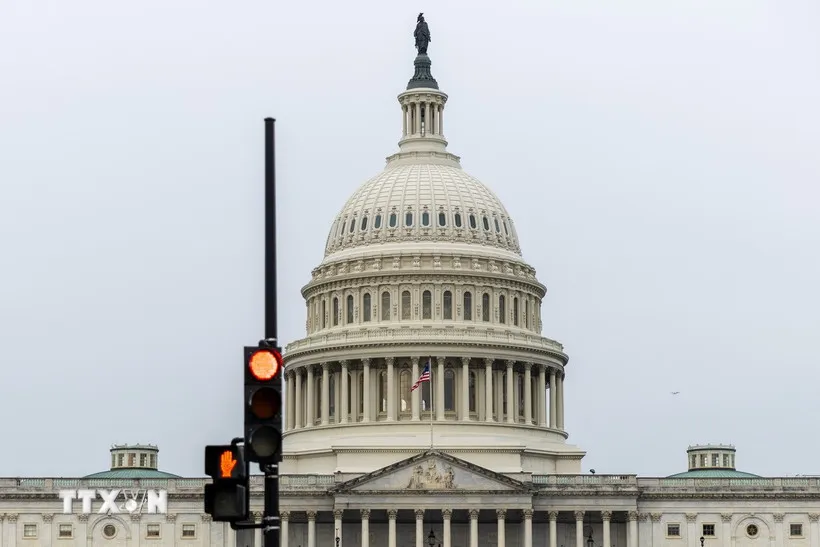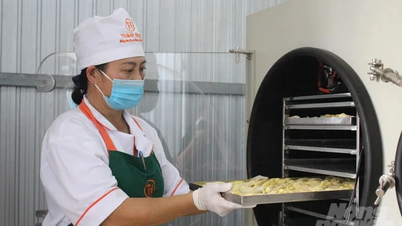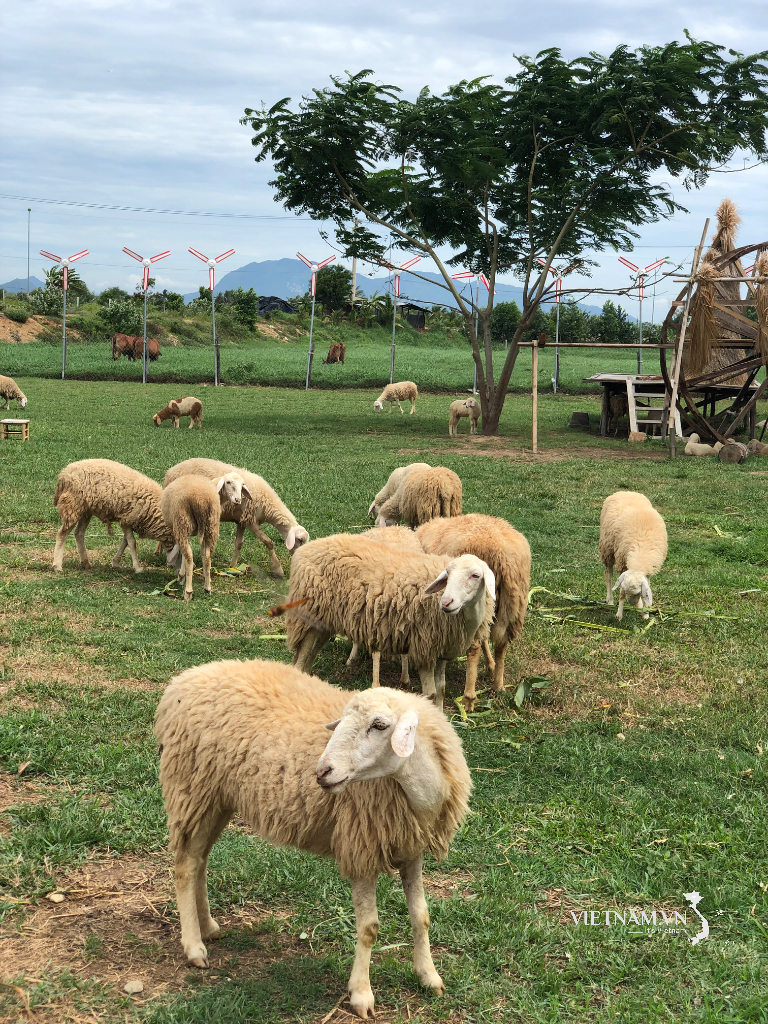Food subsidies in the US have been interrupted since early November.
The United States has been a month since the government was partially shut down due to a fiscal impasse. The longer the shutdown continues, the more serious and pressing the issue is that federal aid is being disrupted.
On November 1, the Food Assistance Program (SNAP) was suspended when the US government was unable to issue regular benefits on schedule. The suspension of this benefit is estimated to have affected up to 42 million Americans, as SNAP is one of the largest social assistance programs in the world.
Other beneficiaries are also on alert, including the nearly 6 million low-income households that participate in energy subsidies and those enrolled in the supplemental nutrition program for children. Even federal employees in the US government are being affected, as they have not been paid since early October.
The subsidies have not reached the recipients, making the burden of living expenses even more difficult for them in recent days.
Disrupted benefits affect the lives of Americans
Ladonna and her family live in Ohio. For years, her family has benefited from government programs like SNAP and WIC. However, during the shutdown, she had to start receiving food at a local food bank.
"This shutdown has made us very worried, not knowing what other benefits will be cut after food subsidies. Food prices are still high, while my husband and I have five children to feed," Ladonna shared.
The situation is even more difficult for people who are out of work, like Anthony, a federal employee who is temporarily laid off due to the current government shutdown.
"This is the first time in my life that I've had to go to a food bank. I don't have any paychecks right now, the situation is quite unstable. All I can do is pray and wait for the lockdown to be resolved soon," said Anthony.

Carts filled with food wait to be distributed to those in need at the Curley's House Food Bank in Miami, Florida. (Photo: Joe Raedle/Getty Images)
According to experts, a significant proportion of Americans are living on welfare and are therefore particularly hard hit when disruptions such as government shutdowns occur.
"Middle-income households can afford a 10 percent increase in their electricity bills, but for low-income households, it means a lot of trade-offs," said Mark Wolfe, director of the National Energy Assistance Program Association. "About a third of Americans live just barely or precariously. Food and energy assistance programs are a safety net to keep them from falling into a worse situation."
The US government is at an impasse in finding a solution to maintain subsidies.
Maintaining some essential benefits, especially food stamps, is one of the few issues that has received bipartisan agreement, but efforts to find a solution have stalled.
Democrats say Republicans are politicizing the issue of benefits, which were never suspended during previous shutdowns. In response, President Donald Trump and Republicans continue to criticize Democrats for trying to prevent the government from reopening, leading to the current disruption.
On October 31, several US federal judges ordered the government to use emergency funds to restore food subsidies, and President Trump said he was ordering a study to do so.
Measures to support Americans in difficulty
While waiting for the impasse in the US Congress to be resolved, people and organizations in the US are trying to provide food assistance to those in need or federal employees who are working without pay, helping them temporarily overcome the challenges ahead.
Giving out candy to children on Halloween is a tradition in the United States. But this year, Ms. Neufeld, a Denver resident, is proposing a meaningful change to help those who have lost their food stamps.
"My idea for Halloween this year was not just to hand out candy, but also to hand out perishable food items to people affected by food stamp cuts. I thought it would be a convenient way to provide food to those in need," said Ms. Neufel.
Within two days, nearly 3,000 people had responded to her social media post, some thanking her, others agreeing with the idea and declaring they would follow suit. Many of the food reserves, such as cheese, cereal, canned soup, and necessities like diapers, were distributed to those in need.
In Florida, non-governmental organizations have distributed food to federal employees to support them during the government shutdown. Many are still working without pay.
"We're here to make sure that they at least have food on the table so they can use their savings to cover other basic needs, have a house to live in, have gas to go to work. Another thing is to reduce the pressure that they face when looking for food for their families," said Paco Velez, CEO of Feeding South Florida.

US Capitol Building in Washington DC (Source: THX/TTXVN)
In Minneapolis, free food distributions were held at the airport to support air traffic controllers who missed their first paycheck.
"This is important because we know that when workers are not paid, food is one of the first expenses to be cut. So these food boxes will help workers have more food to feed their families," said Sarah Moberg, CEO of Second Harvest Heartland.
The emergency food boxes are expected to ease the pressure on air traffic controllers, who are responsible for ensuring aviation safety but are not ensuring the lives of their own families. According to Reuters, the lack of pay is forcing many air traffic controllers to take on extra jobs, such as waiting tables, delivering food or driving Uber... to be able to cover living expenses for their families.
According to the latest information, on the night of November 2, US Treasury Secretary Scott Bessent just announced that SNAP food benefits may be restored starting next Wednesday. But this is still only a temporary solution and it is clear that the US needs a great effort to overcome the current disagreement in reopening the government in the near future.
Source: https://vtv.vn/phep-thu-suc-chong-chiu-cua-kinh-te-my-100251103102602522.htm


![[Photo] Ca Mau "struggling" to cope with the highest tide of the year, forecast to exceed alert level 3](https://vphoto.vietnam.vn/thumb/1200x675/vietnam/resource/IMAGE/2025/11/04/1762235371445_ndo_br_trieu-cuong-2-6486-jpg.webp)
![[Photo] The road connecting Dong Nai with Ho Chi Minh City is still unfinished after 5 years of construction.](https://vphoto.vietnam.vn/thumb/1200x675/vietnam/resource/IMAGE/2025/11/04/1762241675985_ndo_br_dji-20251104104418-0635-d-resize-1295-jpg.webp)
![[Photo] Panorama of the Patriotic Emulation Congress of Nhan Dan Newspaper for the period 2025-2030](https://vphoto.vietnam.vn/thumb/1200x675/vietnam/resource/IMAGE/2025/11/04/1762252775462_ndo_br_dhthiduayeuncbaond-6125-jpg.webp)
![[Photo] Ho Chi Minh City Youth Take Action for a Cleaner Environment](https://vphoto.vietnam.vn/thumb/1200x675/vietnam/resource/IMAGE/2025/11/04/1762233574890_550816358-1108586934787014-6430522970717297480-n-1-jpg.webp)





































































































Comment (0)